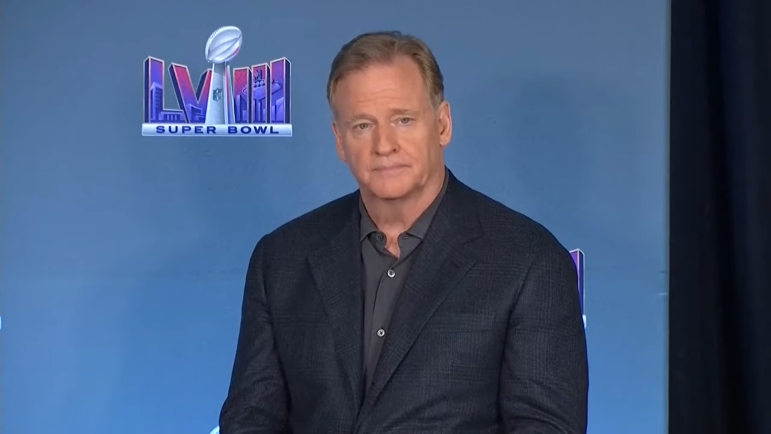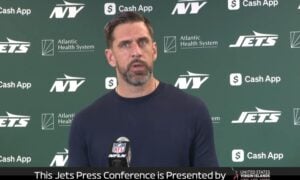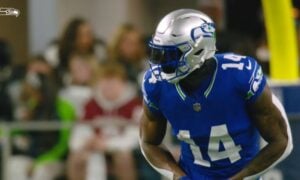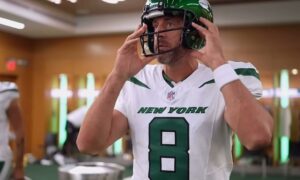NFL commissioner Roger Goodell is trying to be everything to everyone. Testifying in a potentially monumental antitrust lawsuit against the league, Goodell attempted to walk the line between promoting the NFL as pro-consumer and pro-fan while explaining that products like Sunday Ticket weren’t made for the average Joe.
As laid out by the AP’s Joe Reedy, Goodell was on the stand for nearly four hours Monday, grilled over the league’s Sunday Ticket program. The lawsuit, originated in 2015 and finally going to trial now, accuses the league of monopolizing the product at an “inflated” price, making it unattainable for many fans to purchase.
The NFL is on record that Sunday Ticket is a “premium” product with a model of having fewer fans buy it at a high price as opposed to many fans buying it at a lower price. New England Patriots owner Robert Kraft offered such testimony earlier in the case with Goodell confirming that business model Monday.
“Fans make that choice whether they wanted it or not,” Goodell said while on the stand. “I’m sure there were fans who said it was too costly.”
Partnering with DirectTV for most of the program’s life, Sunday Ticket cost hundreds of dollars each year. Even when the league reached a new deal with Google/YouTube to make Sunday Ticket a streaming service, it rejected an ESPN proposal to reduce the price and permit fans to buy single-team packages, allowing Steelers fans all over the country to just watch their games without having to buy the rest of the league alongside it.
While Roger Goodell spoke about purposely setting a premium price for Sunday Ticket, he attempted to sell the league as being pro-consumer.
“We sing it from the mountaintops. We want to reach the broadest possible audience on free television,” he said. “I think we are very pro-consumer. Our partners have found ways to build our fan base.”
Of course, the league has slowly begun shifting away from that model. They’ve partnered with Amazon to exclusively put Thursday night games online. They’ve partnered with NBC and its online streaming service Peacock to host a playoff game. And they’ve partnered with Netflix to host the pair of Christmas games this year, including the Steelers-Chiefs’ contest to start the day. While those games are still shown on TV in local markets, out-of-market fans looking to tune in have to sign up.
While Goodell’s answer can have layers, attempting to make the league accessible while looking to maximize its revenue, he’s in the uncommon position of being put on the spot in a courtroom. In most situations, he’s in control of the interview or at least has the implicit understanding of those speaking with him, like most reporters, don’t want to get on the NFL’s bad side. In this trial, he’s not given any special treatment.
Should the NFL lose the lawsuit, it could be subject to ponying up over $21 billion. It’s not the league’s only court battle. As Pro Football Talk’s Mike Florio notes, a judge is allowing a suit from former NFL Network reporter Jim Trotter to continue. Trotter is accusing the league of wrongful termination after being critical of Goodell and the league for not having a diverse media room.








